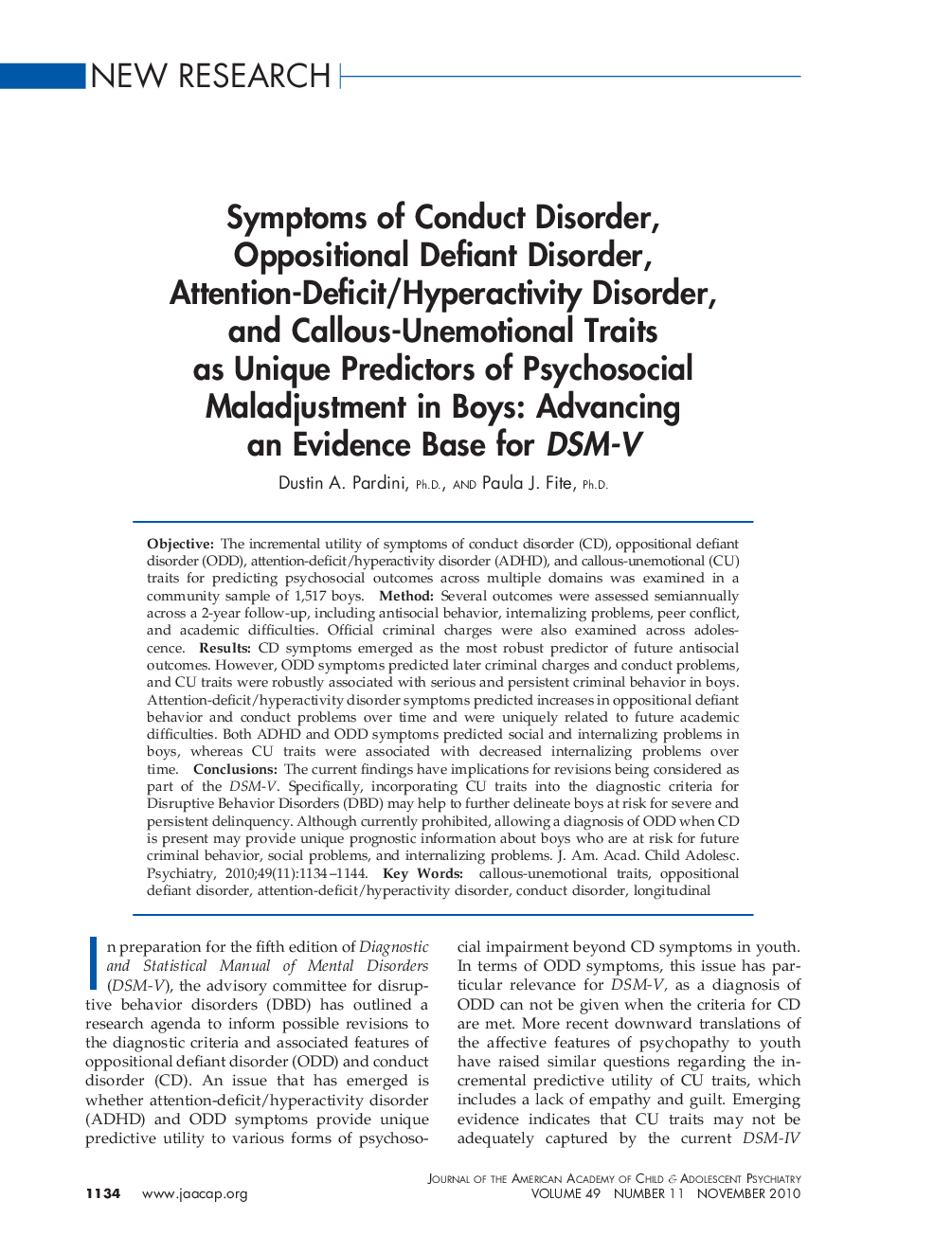| کد مقاله | کد نشریه | سال انتشار | مقاله انگلیسی | نسخه تمام متن |
|---|---|---|---|---|
| 324272 | 1432994 | 2010 | 11 صفحه PDF | دانلود رایگان |

ObjectiveThe incremental utility of symptoms of conduct disorder (CD), oppositional defiant disorder (ODD), attention-deficit/hyperactivity disorder (ADHD), and callous-unemotional (CU) traits for predicting psychosocial outcomes across multiple domains was examined in a community sample of 1,517 boys.MethodSeveral outcomes were assessed semiannually across a 2-year follow-up, including antisocial behavior, internalizing problems, peer conflict, and academic difficulties. Official criminal charges were also examined across adolescence.ResultsCD symptoms emerged as the most robust predictor of future antisocial outcomes. However, ODD symptoms predicted later criminal charges and conduct problems, and CU traits were robustly associated with serious and persistent criminal behavior in boys. Attention-deficit/hyperactivity disorder symptoms predicted increases in oppositional defiant behavior and conduct problems over time and were uniquely related to future academic difficulties. Both ADHD and ODD symptoms predicted social and internalizing problems in boys, whereas CU traits were associated with decreased internalizing problems over time.ConclusionsThe current findings have implications for revisions being considered as part of the DSM-V. Specifically, incorporating CU traits into the diagnostic criteria for Disruptive Behavior Disorders (DBD) may help to further delineate boys at risk for severe and persistent delinquency. Although currently prohibited, allowing a diagnosis of ODD when CD is present may provide unique prognostic information about boys who are at risk for future criminal behavior, social problems, and internalizing problems.
Journal: Journal of the American Academy of Child & Adolescent Psychiatry - Volume 49, Issue 11, November 2010, Pages 1134–1144